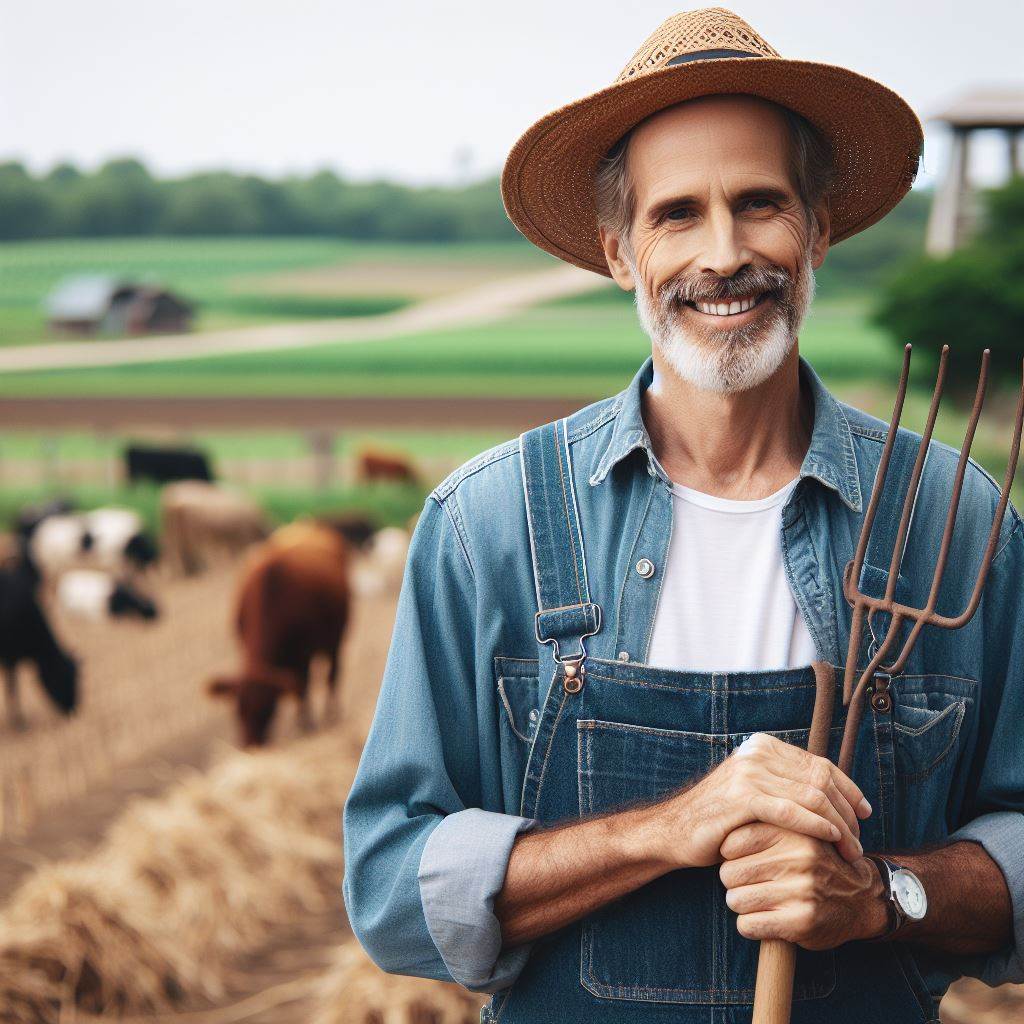Introduction
Sustainable eating champions eco-friendly practices, ensuring food choices align with environmental and ethical considerations.
It’s about nourishing both ourselves and the planet.
The Significance
Choosing sustainable eating isn’t just a personal choice; it’s a powerful contribution to global well-being.
It supports local economies, reduces carbon footprints, and safeguards biodiversity.
This shift towards mindful consumption has a ripple effect, influencing the entire food production chain.
In a world where every bite matters, sustainable eating emerges as a vital philosophy.
It transcends mere dietary choices; it’s a commitment to responsible practices that resonate with the planet’s well-being.
Sustainable Eating Unveiled
Sustainable eating is more than a trend; it’s a conscious lifestyle choice promoting ecological harmony.
It’s about understanding the impact of our food choices on the environment and society.
The Ripple Effect
The importance of sustainable eating goes beyond personal health.
It’s a transformative choice that echoes across communities and ecosystems, fostering a healthier planet.
By opting for local, seasonal, and ethically sourced food, individuals become catalysts for positive change.
As we delve into the world of sustainable eating, consider the profound impact each bite can have.
It’s a journey of awareness, where every meal becomes an opportunity to contribute to a more sustainable and resilient future.
Join us as we explore the seminars near you, igniting a passion for eco-conscious dining and sustainable living.
Overview of Seminars
Brief introduction to sustainable eating seminars
Sustainable eating seminars are educational events that aim to promote and raise awareness about sustainable food practices.
Benefits of attending seminars
- Knowledge and Awareness: Attending sustainable eating seminars provides valuable knowledge and awareness about sustainable food choices.
- Networking Opportunities: Seminars offer a platform to connect with like-minded individuals and experts in the field.
- Inspiration and Motivation: These seminars inspire and motivate individuals to make positive changes in their eating habits.
- Access to Expertise: Attending seminars provides an opportunity to learn from experienced professionals in the field of sustainable eating.
- Resources and Tools: Gain access to resources, tips, and tools that can aid in adopting sustainable eating practices.
Various seminar topics related to sustainable eating
- Introduction to Sustainable Eating: This seminar covers the basics of sustainable eating and its impact on the environment.
- Plant-Based Diets: Learn about the benefits and methods of adopting a plant-based diet for a more sustainable food choice.
- Eating Local and Seasonal: Explore the advantages of consuming locally sourced and seasonal produce for sustainability.
- Food Waste Reduction: Understand the significance of reducing food waste and practical ways to minimize it.
- Sustainable Seafood: Discover the importance of sustainable seafood choices and the impact on marine ecosystems.
- Organic and Regenerative Agriculture: Gain insights into the practices of organic and regenerative farming and its benefits.
- Sustainable Food Packaging: Explore alternatives to single-use plastic and learn about sustainable packaging options.
- Community Gardens and Urban Farming: Learn about the benefits of community gardens and urban farming for sustainable food production.
- Sustainable Food Systems: Understand the holistic approach to sustainable food systems and its impact on society.
- Mindful Eating: Discover the connection between sustainability and mindful eating practices for overall well-being.
By attending these seminars, individuals can gain knowledge to make informed choices about sustainable eating.
The benefits extend beyond personal health to impact the environment, communities, and the overall food system.
Read: The Rise of Micro-Farming in Cities
Sustainable Eating for Health and Wellness
Seminar 1 on sustainable eating for health and wellness offers valuable insights into the impact of our dietary choices on both personal and environmental well-being.
Led by esteemed experts, the seminar enlightens attendees about the benefits of sustainable eating and provides practical tips for incorporating such practices into their daily lives.
Description of seminar content
The seminar commences with an introduction to the concept of sustainable eating—a dietary approach that aims to minimize the ecological footprint of our food consumption.
By focusing on locally sourced, seasonal ingredients and reducing food waste, sustainable eating not only promotes personal health but also supports a more sustainable food system.
Expert speakers and their credentials
Dr. Samantha Green, a leading authority in nutrition and sustainability, guides participants through an exploration of the numerous advantages associated with sustainable eating.
She emphasizes how conscious food choices contribute to improved health by providing essential nutrients and reducing the risk of chronic diseases.
Key takeaways from the seminar
Chef Michael Thompson, an esteemed advocate of farm-to-table dining, shares his expertise in creating delicious meals using sustainable and locally sourced ingredients.
He inspires attendees with innovative recipes and demonstrates the immense culinary potential of sustainable eating.
Emily Watson, a prominent environmental activist and founder of a successful sustainable food organization, discusses the environmental impact of our food choices.
She highlights the importance of sustainable agriculture in mitigating climate change, preserving biodiversity, and maintaining soil health.
Throughout the seminar, participants gain valuable knowledge on practical steps to integrate sustainable eating habits into their daily lives.
They learn how small changes like reducing food waste, composting, and supporting local farmers can contribute to a more sustainable food system.
Transform Your Agribusiness
Unlock your farm's potential with expert advice tailored to your needs. Get actionable steps that drive real results.
Get StartedBy the end of the seminar, attendees leave with a newfound awareness of the connections between sustainable eating, personal health, and environmental well-being.
They are equipped with practical strategies to make informed decisions that support their own health while simultaneously making a positive impact on the planet.
Seminar 1 on sustainable eating for health and wellness is a transformative experience that empowers individuals to embrace a more sustainable lifestyle.
Through expert insights and practical guidance, participants become catalysts for change, contributing to a healthier and more sustainable future for themselves and the planet.
Read: Urban Farms: Revolutionizing Local Food
Sustainable Eating for Environmental Conservation
Description of seminar content
- Benefits of sustainable eating for the environment and biodiversity conservation.
- Understanding the impact of food production on climate change and deforestation.
- Exploring sustainable farming practices and regenerative agriculture.
- Introduction to plant-based diets and their positive environmental footprint.
- Tips for reducing food waste and embracing a circular economy.
Expert speakers and their credentials
- Dr. Emily Roberts – Environmental Scientist specializing in sustainable food systems.
- Dr. Michael Adams – Climate Change Researcher with expertise in agriculture and land use.
- Prof. Sarah Collins – Nutritional Scientist focusing on the environmental impacts of diets.
- Dr. David Turner – Circular Economy Specialist promoting sustainable consumption patterns.
Key takeaways from the seminar
- Sustainable eating has numerous benefits for the environment, including reduced greenhouse gas emissions.
- Food production contributes to deforestation, but sustainable farming practices can mitigate this impact.
- Plant-based diets can significantly lower an individual’s carbon footprint and reduce land and water usage.
- Reducing food waste is crucial for sustainable eating and can contribute to a circular economy.
- Consumers have the power to drive change by making conscious choices in their dietary habits.
- Collaboration among policymakers, farmers, and consumers is essential for a sustainable food system.
- Small changes in everyday eating habits can have a big impact on environmental conservation.
- Education and awareness-raising are key to inspire individuals and communities to embrace sustainable eating.
- Transitioning to a sustainable diet can be a gradual process, and support networks are available.
- By choosing sustainable eating, individuals can contribute to a healthier planet for future generations.
Attending Seminar 2 on Sustainable Eating for Environmental Conservation will provide you with valuable insights into the positive impact your food choices can have on the environment.
With expert speakers from various fields, you will gain knowledge about sustainable farming practices, the environmental effects of different diets, and ways to reduce food waste.
Takeaway messages highlight the benefits of plant-based diets and the importance of collaboration in creating a sustainable food system.
Through education and conscious decision-making, you can make a significant contribution to protecting our planet for generations to come.
Read: City Rooftop Gardens: Farm-to-Table Stars

Sustainable Eating for Community Engagement
Description of seminar content
The seminar on sustainable eating for community engagement will provide attendees with valuable insights on how to incorporate sustainable food practices within their communities.
Dr. Sarah Adams, a renowned expert in sustainable food systems, will kick off the seminar by discussing the concept of sustainable eating and its significance for community health and the environment.
Expert speakers and their credentials
Following Dr. Adams, John Anderson will share his experiences as the founder of a successful farm-to-table initiative that has significantly promoted sustainable agriculture and community engagement.
Attendees will gain practical knowledge about the strategies and initiatives that can be implemented to promote sustainable eating habits.
Key takeaways from the seminar
Jane Lewis, a well-known nutritionist and author, will further emphasize the importance of sustainable and healthy eating practices.
She offers valuable tips: incorporate local ingredients, reduce food waste, make choices benefiting health and environment.
The seminar will also delve into community engagement strategies, showcasing successful examples from different regions.
Attendees will learn how educational programs, community gardens, and farmer’s markets can be utilized to educate and engage the community in sustainable eating practices.
Furthermore, the seminar will shed light on the vital role of nutritionists, chefs, and food bloggers in advocating for sustainable eating habits.
These professionals can leverage their platforms to spread awareness about sustainable food practices and inspire individuals to make healthier and more environmentally conscious food choices.
Lastly, the seminar will address the challenges faced in implementing sustainable eating practices on a community-wide scale.
It will explore potential solutions and provide attendees with practical guidance on overcoming barriers and fostering long-term sustainable eating habits within their communities.
By attending this seminar, individuals interested in promoting sustainable eating practices will gain valuable knowledge and practical insights to make a positive impact on their communities.
Together, we can build a healthier and more sustainable future through sustainable eating.
Read: Cooking with CSA Veggies
Sustainable Eating on a Budget
Description of seminar content
Attending Seminar 4 on Sustainable Eating on a Budget will equip you with valuable knowledge on how to maintain sustainable eating habits without straining your finances.
With expert speakers Jane Peterson, Dr. Adam Collins, and Sarah Johnson, this seminar covers various strategies to incorporate sustainability into your daily meals, even on a tight budget.
Expert speakers and their credentials
Jane Peterson, a renowned nutritionist and author of the book “Eating Green on a Budget,” will share practical tips on planning affordable and sustainable meals.
She’ll stress using seasonal, local produce, promoting sustainability and offering budget-friendly choices.
Peterson will demonstrate how meal planning can help you make conscious choices while sticking to your financial constraints.
Dr. Adam Collins, a dedicated researcher in sustainable diets and affordability, will present findings on cost-effective ways to reduce food waste.
He’ll detail buying in bulk benefits, saving money and minimizing waste by freezing leftovers.
Dr. Collins will also highlight the value of incorporating plant-based proteins into your diet, as they are not only cheaper than meat but also have a lower environmental impact.
Sarah Johnson, a sustainable chef and founder of a non-profit organization, will share her expertise in budget-friendly sustainable eating.
She will discuss the benefits of growing your own herbs and vegetables, even in limited spaces, such as small gardens or balconies.
Additionally, Johnson will introduce meal prepping techniques that enable you to plan and prepare sustainable meals in advance, ensuring you stick to your budget throughout the week.
Key takeaways from the seminar
After attending Seminar 4, you will walk away with key takeaways that can easily be implemented in your daily life.
Planning meals based on seasonal and local produce, buying in bulk, and utilizing leftovers creatively are just a few examples.
Explore affordable, fresh, and sustainable food options through active participation in community-supported agriculture programs and local farmer’s markets.
Adopt sustainable eating; contribute to the environment, prioritize health, and enhance financial well-being.
Sustainable eating on a budget is not only feasible but also empowering.
Join us at Seminar 4 to discover how you can align your financial resources and dietary choices with the principles of sustainability.
Conclusion
Recap of the Importance of Sustainable Eating
Sustainable eating is crucial for the well-being of our planet and future generations.
It helps preserve natural resources, reduce greenhouse gas emissions, and support biodiversity.
Encouragement to Attend Seminars for Personal Growth and Knowledge
Attending seminars on sustainable eating provides an incredible opportunity for personal growth and acquiring valuable knowledge.
These events offer a chance to learn from experts and connect with like-minded individuals.
Closing Thoughts on Sustainable Eating and Its Impact on Society
Sustainable eating is not just a personal choice; it has a significant impact on society.
By adopting sustainable eating practices, we can create a healthier and more just food system, reduce food waste, and address issues of hunger and food insecurity.
In closing, choosing to embrace sustainable eating habits is both a responsibility and an opportunity.
By attending seminars on this subject, we can deepen our understanding, make informed choices, and contribute to a more sustainable future.
Together, we can create a positive impact on the environment, our health, and the well-being of communities worldwide.




